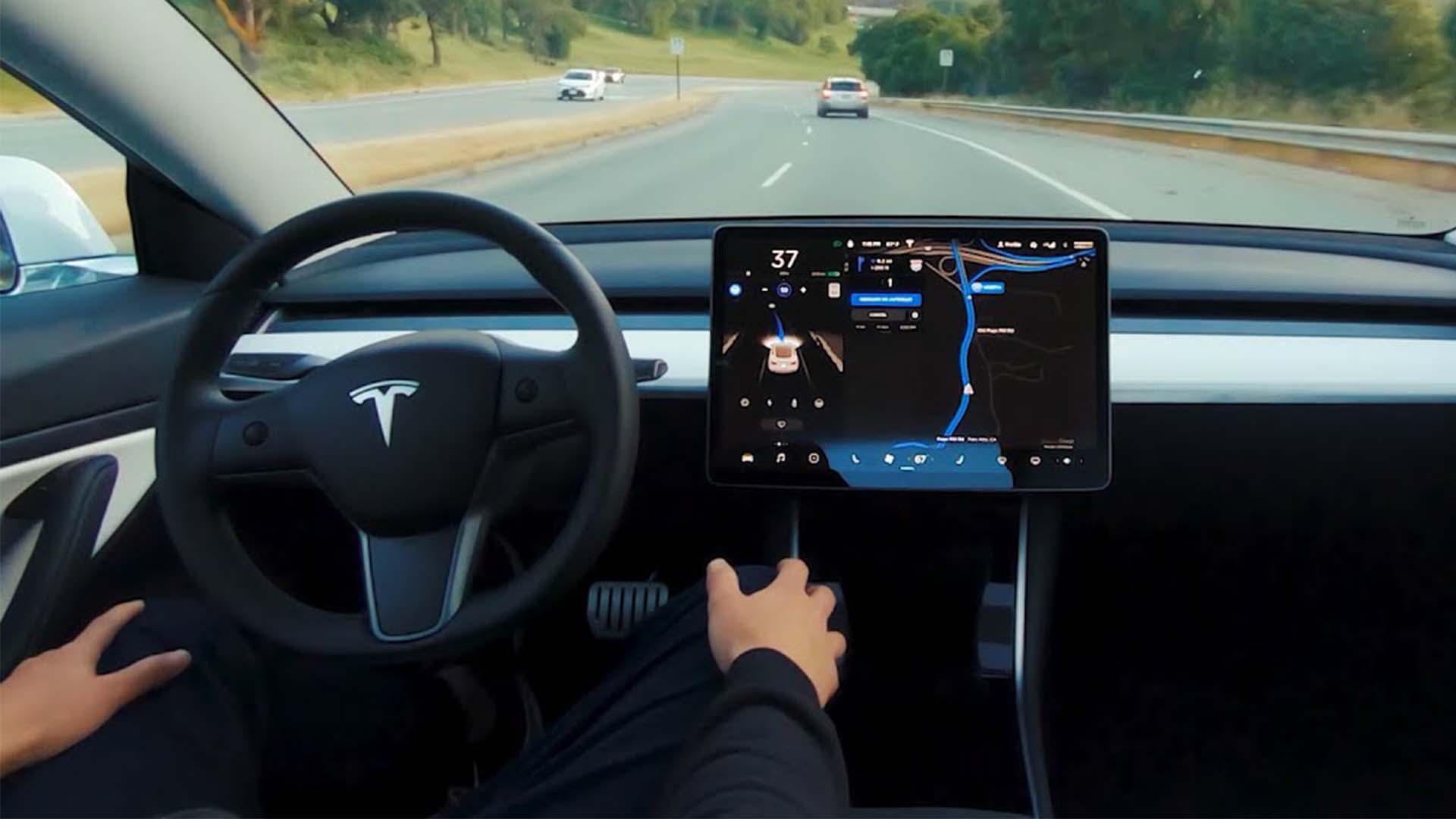

Electric automaker Tesla is formally recalling 53,822 vehicles, as detailed by a filing with the National Highway Traffic Safety Administration.
A newly published defect report reveals that Tesla’s programming intentionally allowed Model 3, Y, S, and X cars equipped with Full Self-Driving Beta to perform rolling stops at stop signs when certain conditions are met. Tesla vehicles with access to the now-$12,000 FSD Beta feature have been able to perform rolling stops since October 2021, according to the report, the activation of which is dependent on a software profile selected by the driver.

These profiles affect the behavior of how FSD operates. When selecting either the “Average” or “Assertive” profiles, the vehicle acknowledges that it “may perform rolling stops.” The exact scenarios of when a vehicle might perform these types of partial stops are outlined in the defect report and can be seen in the image above. However, the scenarios are assuming that the vehicle properly recognizes all of the environmental variables—including properly identifying an all-way stop and speed limits. It also has to make sure there are no vehicles, pedestrians, and cyclists near the intersection.
Eventually, several users on Twitter began pinging the NHTSA.
As it turns out, the agency’s opinion is harsh enough to warrant a recall on every car running the FSD Beta software.
While rolling stops are not governed on a federal level, the majority of states require vehicles to come to a full stop when at a stop sign. A rolling stop, whether it be under 5 mph or not, would potentially constitute a willing violation of road laws.
Despite the feature being named “Full Self-Driving,” it’s not an autonomous driving system and doesn’t make the car driverless in any sense. In fact, Jennifer Homendy—head of the National Transportation Safety Board—previously called the name “misleading and irresponsible.” Tesla previously told California regulators that FSD Beta fits the SAE definition of Level 2 partial autonomy, meaning that the person behind the wheel must always be in control. So if the driver assistance feature is blowing through stop signs and the driver doesn’t do anything to stop it, they are potentially in violation of traffic laws.
Tesla says it is not aware of any injuries as a result of the rolling stop feature; however, it will begin disabling it with an over-the-air update.
This is the second recall of Tesla’s FSD Beta software, the first of which was announced in November and covered a phantom emergency braking defect in 12,000 cars. Tesla was also investigated in December over in-car video games which could be played while the vehicle was in motion, and the feature has since been disabled. An additional probe is ongoing over Teslas that collided with emergency vehicles while Autopilot was enabled.
Meanwhile, Tesla CEO Elon Musk stated during the latest company earnings report that he would be “shocked” if Tesla did not achieve “full self-driving safer than human” in 2022. If accurate, it would appear that Tesla may have a number of hurdles to jump over to ensure full regulatory compliance with not just federal law, but state laws as well.
Got a tip or question for the author? You can reach them here: Rob@TheDrive.com